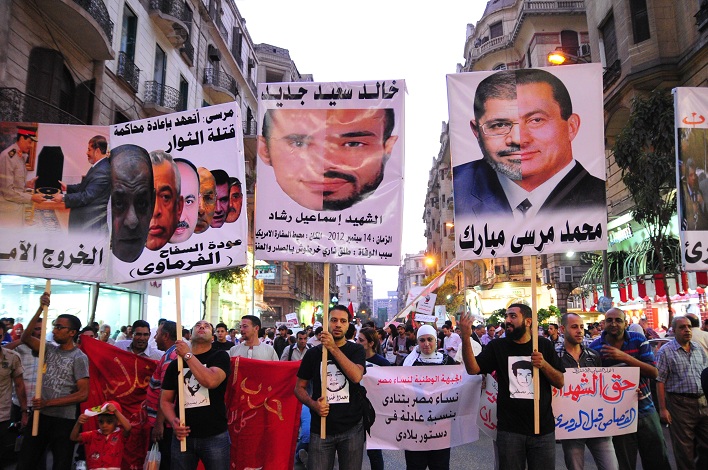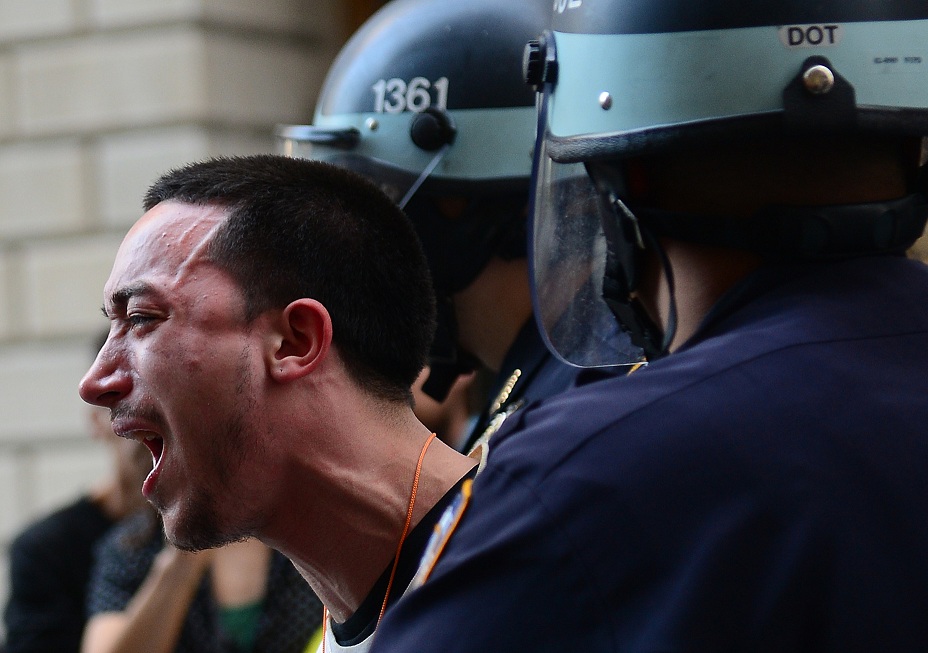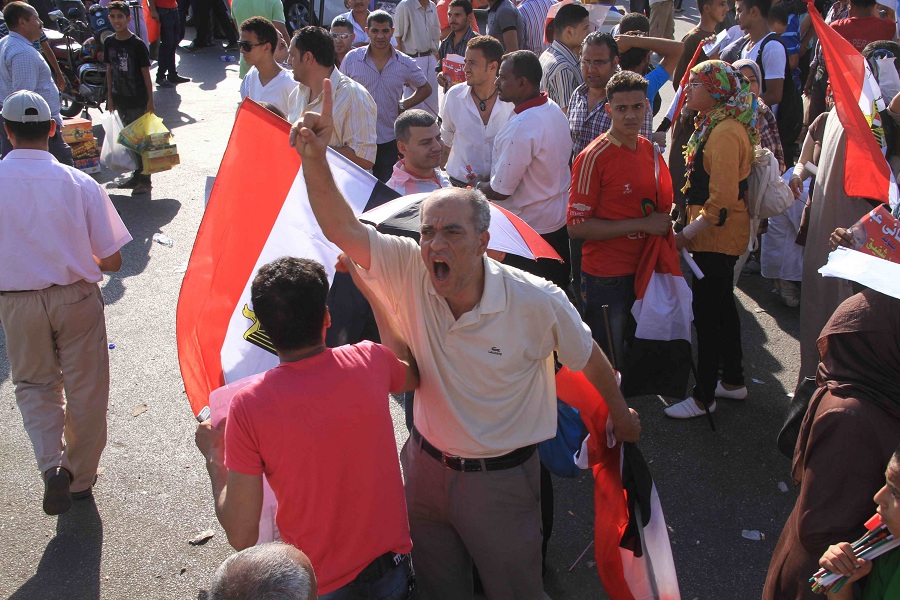Leftist groups march for “the rights of Egyptians”
Saturday march from Tala'at Harb Square focus on five demands
Protesters arrested on anniversary of OWS
100 protesters march with $100 bills taped to their mouths, demanding money…
Different visions as 24 August approaches
As the day of planned protests approaches, different political figures outline their…


